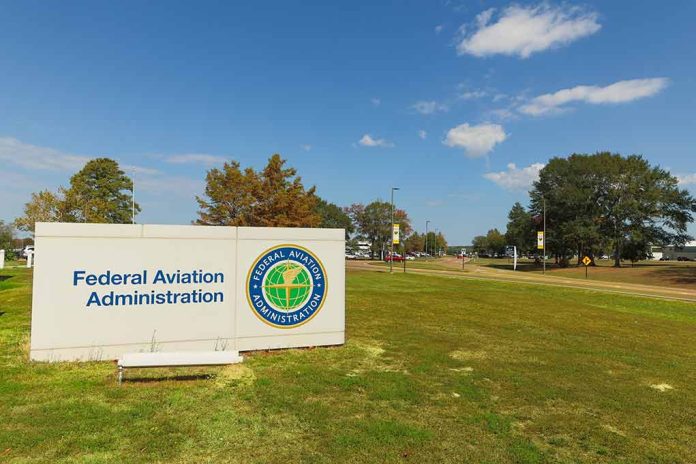
It seems our friendly neighborhood Federal Aviation Administration has been under heavy scrutiny. Who would’ve thought that the agency responsible for keeping our skies safe might be too lenient with the companies they’re supposed to regulate? Buckle up, because we’re about to take a turbulent ride through the FAA’s alleged oversight failures.
FAA Oversight Failures
The Federal Aviation Administration (FAA) has found itself in hot water as its approach to overseeing Boeing comes under intense scrutiny. Senator Maria Cantwell, Chair of the Senate Commerce Committee, has asked the FAA conduct a “root cause analysis” of its oversight procedures following a series of alarming revelations.
Dem Senate leader plans new FAA safety requirementshttps://t.co/AEAjYlDkyj
— FOX Business (@FoxBusiness) August 1, 2024
The FAA’s new Administrator, Mike Whitaker, recently admitted that the agency had been “too hands off” with Boeing, a startling confession that has raised serious concerns about the efficacy of FAA’s regulatory practices. This admission comes in the wake of a special audit that uncovered numerous instances of noncompliance at both Boeing and its supplier, Spirit AeroSystems.
“I have serious concerns about FAA’s audits of Boeing and its suppliers, including whether the results of these audits indicate ongoing production issues or ineffective regulatory oversight, or both,” Cantwell wrote in a recent letter.
Audit Revelations and Lack of Enforcement
The special FAA audit, conducted in response to the Alaska Airlines door plug incident, revealed a troubling pattern of noncompliance issues at Boeing and Spirit. However, what’s even more concerning is the FAA’s apparent reluctance to take enforcement action. Over a two-year period, the agency conducted 298 audits without initiating any enforcement proceedings, raising questions about the effectiveness of its oversight mechanisms.
“It remains unclear how FAA will improve its oversight of Boeing and ensure that Boeing addresses the root causes of the noncompliances identified from all these recent audits,” Cantwell wrote.
This lack of enforcement has prompted Cantwell to demand that Boeing’s CEO appear before her committee to address these issues directly. The senator’s concerns extend beyond Boeing to the FAA itself, as she questions whether the agency’s actions—or inactions—may have contributed to the ongoing problems in aircraft production and safety.
Legislative Action and FAA Self-Evaluation
In response to these concerns, Cantwell revealed she would be unveiling new safety requirements for the FAA. Cantwell emphasized the critical role of effective FAA oversight in maintaining the United States’ position as the global leader in aviation safety.
According to Cantwell, “FAA’s effective regulatory oversight is key to ensure Boeing, other aviation manufacturers, and the United States remain the gold standard for aviation safety.”
The senator has also called for the FAA to undertake a process of self-evaluation to identify and address the root causes of its oversight shortcomings. This introspective approach is seen as crucial for restoring confidence in the agency’s ability to regulate the aviation industry effectively.
As these developments unfold, the aviation industry and the American public will be watching closely to see how the FAA addresses these concerns and works to rebuild trust in its regulatory capabilities. The safety of the skies and the future of American aviation excellence hang in the balance.
Sources
- Dem Senate leader plans new FAA safety requirements
- US senator to propose bill to require new FAA safety efforts
- Senator Concerned FAA “Inaction” Led to Boeing Safety Issues
- Senate Passes Bill Improving Air Safety and Service for Travelers, a Day Before FAA Law Expires
- Senate Approves Bill to Reauthorize F.A.A. and Improve Air Travel
- Senate Overwhelmingly Approves FAA Reauthorization Act
- National Airspace System Safety Review Team
More from Around the Web:
Senator Maria Cantwell speaks on the FAA Reauthorization Act of 2024:

















